Saffron
How to submit an article:
- Registered users can submit any published journal article that has a unique DOI (Digital Object Identifier) name or link to Research Hub.
- For example, you can paste the full DOI link:
https://doi.org/10.1109/5.771073or just the DOI name:10.1109/5.771073into the field above and click submit. - The person who is first to submit a valid article to Research Hub will forever be credited for it, and every article submission earns you +6 Research Points.
Also known as: Fan Hong Hua
Related Topics
Published research studies are articles that present the findings of original research that has undergone a peer-review process and has been made publicly available in scholarly journals, books or other media.

Network pharmacology-based strategic prediction and target identification of apocarotenoids and carotenoids from standardized Kashmir saffron (Crocus sativus L.) extract against polycystic ovary syndrome
2023 Aug 11 Medicine Tiwari A, Modi SJ, Girme A, Hingorani L
Network Pharmacology PCOS SaffronThe compounds apocarotenoids and carotenoids found in saffron extract could potentially interact with multiple targets, helping to manage the symptoms of polycystic ovary syndrome.

Advances on the anti-tumor mechanisms of the carotenoid Crocin
2023 Jun 29 PeerJ Bao X, Hu J, Zhao Y, Jia R, Zhang H, Xia L
Review Article Crocin Liver Cancer Saffron Breast Cancer Stomach Cancer Colorectal Cancer Cervical Cancer Anti-TumourCrocin, a compound derived from saffron, has shown considerable potential in hindering tumor growth and improving immune status, across various malignant tumors.
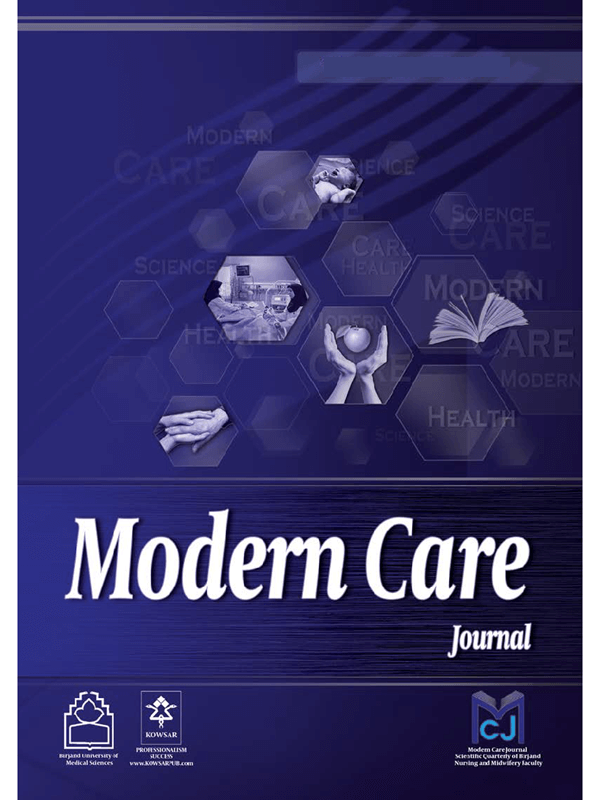
Efficacy of Saffron (Crocus sativus L.) in Premenstrual Syndrome, Labor, Childbirth, and Menopause: A Systematic Review of Clinical Trials
2023 May 09 Modern Care Journal Irani M, Rahmanian A, Soltani N
Systematic Review Saffron Premenstrual Syndrome Labour MenopauseSaffron shows promising improvements in dealing with women's health issues related to labor, childbirth, premenstrual syndrome and menopause.

Effect of saffron supplementation on oxidative stress markers (MDA, TAC, TOS, GPx, SOD, and pro-oxidant/antioxidant balance): An updated systematic review and meta-analysis of randomized placebo-controlled trials
2023 Feb 01 Frontiers in Medicine Abedi A, Ghobadi H, Sharghi A, Iranpour S, Fazlzadeh M, Aslani MR
Systematic Review Meta-Analysis Saffron Oxidative StressSaffron supplementation significantly decreased oxidative stress markers and has beneficial effects in reducing oxidative stress.

A randomized clinical trial to test efficacy of chamomile and saffron for neuroprotective and anti-inflammatory responses in depressive patients
2022 Oct Heliyon Ahmad S, Azhar A, Tikmani P, Rafique H, Khan A, Mesiya H, et al.
Randomised Controlled Trial Anti-Inflammatory Saffron Chamomile NeuroprotectiveThe combined use of chamomile and saffron with usual medication enhances the efficacy against depression and ensures long term improvement.
Research insights are moderated by the Research Hub team and offer an at-a-glance overview of interesting research findings.

2023 Medicine
The compounds apocarotenoids and carotenoids found in saffron extract could potentially interact with multiple targets, helping to manage the symptoms of polycystic ovary syndrome.
Network Pharmacology PCOS
Network pharmacology-based strategic prediction and target identification of apocarotenoids and carotenoids from standardized Kashmir saffron (Crocus sativus L.) extract against polycystic ovary syndrome
Tiwari A, Modi SJ, Girme A, Hingorani L

2023 PeerJ
Crocin, a compound derived from saffron, has shown considerable potential in hindering tumor growth and improving immune status, across various malignant tumors.
Review Article Anti-Tumour Breast Cancer Cervical Cancer Colorectal Cancer Crocin
Advances on the anti-tumor mechanisms of the carotenoid Crocin
Bao X, Hu J, Zhao Y, Jia R, Zhang H, Xia L

2023 Modern Care Journal
Saffron shows promising improvements in dealing with women's health issues related to labor, childbirth, premenstrual syndrome and menopause.
Systematic Review Labour Menopause Premenstrual Syndrome
Efficacy of Saffron (Crocus sativus L.) in Premenstrual Syndrome, Labor, Childbirth, and Menopause: A Systematic Review of Clinical Trials
Irani M, Rahmanian A, Soltani N

2023 Frontiers in Medicine
Saffron supplementation significantly decreased oxidative stress markers and has beneficial effects in reducing oxidative stress.
Systematic Review Oxidative Stress
Effect of saffron supplementation on oxidative stress markers (MDA, TAC, TOS, GPx, SOD, and pro-oxidant/antioxidant balance): An updated systematic review and meta-analysis of randomized placebo-controlled trials
Abedi A, Ghobadi H, Sharghi A, Iranpour S, Fazlzadeh M, Aslani MR

2022 Heliyon
The combined use of chamomile and saffron with usual medication enhances the efficacy against depression and ensures long term improvement.
Randomised Controlled Trial Anti-Inflammatory Chamomile Neuroprotective
A randomized clinical trial to test efficacy of chamomile and saffron for neuroprotective and anti-inflammatory responses in depressive patients
Ahmad S, Azhar A, Tikmani P, Rafique H, Khan A, Mesiya H, et al.
Review Articles
Review articles summarise and critically evaluate the current state of research on a specific topic or field by synthesising multiple primary research studies.

Advances on the anti-tumor mechanisms of the carotenoid Crocin
2023 Jun 29 PeerJ Bao X, Hu J, Zhao Y, Jia R, Zhang H, Xia L
Review Article Crocin Liver Cancer Saffron Breast Cancer Stomach Cancer Colorectal Cancer Cervical Cancer Anti-TumourCrocin, a compound derived from saffron, has shown considerable potential in hindering tumor growth and improving immune status, across various malignant tumors.

Efficacy of Saffron (Crocus sativus L.) in Premenstrual Syndrome, Labor, Childbirth, and Menopause: A Systematic Review of Clinical Trials
2023 May 09 Modern Care Journal Irani M, Rahmanian A, Soltani N
Systematic Review Saffron Premenstrual Syndrome Labour MenopauseSaffron shows promising improvements in dealing with women's health issues related to labor, childbirth, premenstrual syndrome and menopause.

Effect of saffron supplementation on oxidative stress markers (MDA, TAC, TOS, GPx, SOD, and pro-oxidant/antioxidant balance): An updated systematic review and meta-analysis of randomized placebo-controlled trials
2023 Feb 01 Frontiers in Medicine Abedi A, Ghobadi H, Sharghi A, Iranpour S, Fazlzadeh M, Aslani MR
Systematic Review Meta-Analysis Saffron Oxidative StressSaffron supplementation significantly decreased oxidative stress markers and has beneficial effects in reducing oxidative stress.
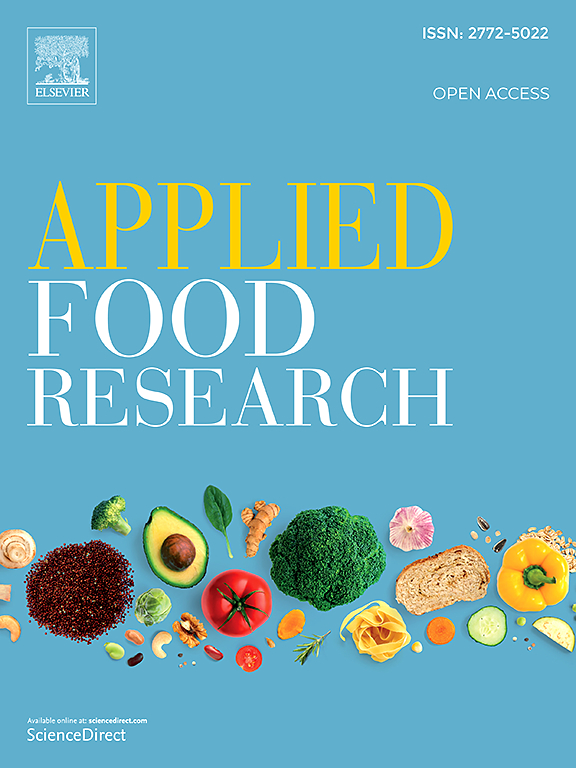
Bioactive constituents of saffron plant: Extraction, encapsulation and their food and pharmaceutical applications
2022 Jun Applied Food Research Bakshi RA, Sodhi NS, Wani IA, Khan ZS, Dhillon B, Gani A
Review Article Extraction Saffron Bioactive CompoundsSaffron plant's various parts contain bioactive compounds that, when extracted using innovative techniques, show significant potential for use in food, nutraceutical and drug formulations.
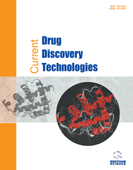
Edible Medicinal Plants on Facilitating Childbirth: A Systematic Review
2022 Mar Current Drug Discovery Technologies Ivari FR, Vatanchi AM, Yousefi M, Badaksh F, Salari R
Systematic Review Chamomile Castor Oil Saffron Dill Seed Labour InductionEdible medicinal plants like saffron, chamomile, dill seeds, and castor oil have demonstrated positive effects on various aspects of labor, indicating potential natural alternatives for aiding childbirth.
Clinical Trials
Clinical trials are research studies that involve people and are conducted to evaluate the safety and efficacy of new treatments or interventions, such as drugs, medical devices, or behavioural therapies.

A randomized clinical trial to test efficacy of chamomile and saffron for neuroprotective and anti-inflammatory responses in depressive patients
2022 Oct Heliyon Ahmad S, Azhar A, Tikmani P, Rafique H, Khan A, Mesiya H, et al.
Randomised Controlled Trial Anti-Inflammatory Saffron Chamomile NeuroprotectiveThe combined use of chamomile and saffron with usual medication enhances the efficacy against depression and ensures long term improvement.
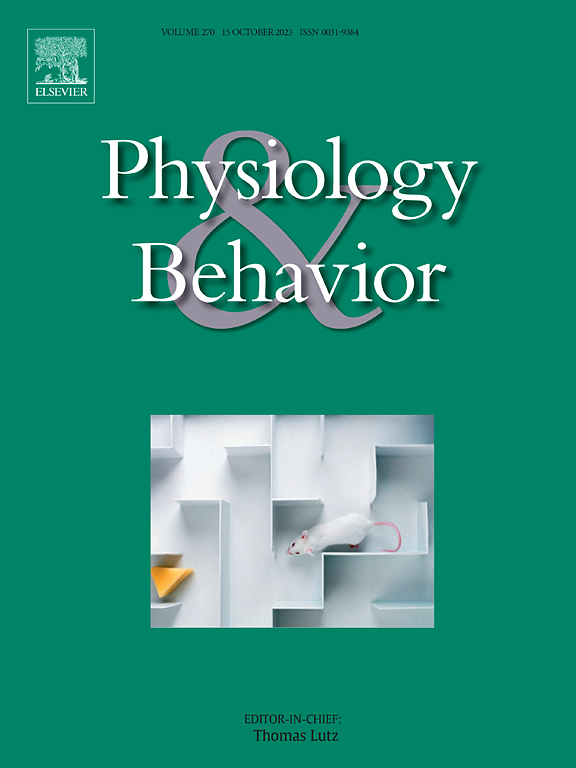
Impact of saffron (Crocus Sativus Linn) supplementation and resistance training on markers implicated in depression and happiness levels in untrained young males
2021 May Physiology & Behavior Moghadam BH, Bagheri R, Roozbeh B, Ashtary-Larky D, Gaeini AA, Dutheil F, et al.
Randomised Controlled Trial Saffron Depression DopamineCombining resistance training with saffron supplementation enhances happiness levels and increases dopamine and serotonin concentrations more than resistance training alone.

Effects of Saffron Extract Supplementation on Mood, Well-Being, and Response to a Psychosocial Stressor in Healthy Adults: A Randomized, Double-Blind, Parallel Group, Clinical Trial
2021 Feb 01 Frontiers in Nutrition Jackson PA, Forster J, Khan J, Pouchieu C, Dubreuil S, Gaudout D, et al.
Experimental Study Randomised Controlled Trial Mood SaffronSupplementation with standardized saffron extract improves depressive symptoms and social relationships in healthy individuals experiencing subclinical low mood and stress.
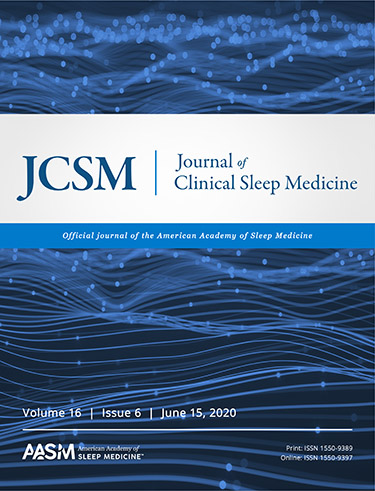
Effects of saffron on sleep quality in healthy adults with self-reported poor sleep: a randomized, double-blind, placebo-controlled trial
2020 Jun 15 Journal of Clinical Sleep Medicine Lopresti AL, Smith SJ, Metse AP, Drummond PD
Randomised Controlled Trial SaffronThe use of standardized saffron extract appears to show significant improvement in sleep quality in healthy adults with self-reported sleep issues.
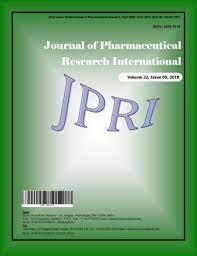
The Effect of Honey Saffron Syrup on Labor Progression in Nulliparous Women
2019 Jul 12 Journal of Pharmaceutical Research International Ghaderi S, Zaheri F, Nouri B, Shahoei R
Randomised Controlled Trial Labour Induction HoneyAdministration of honey saffron syrup reduces the length of all stages of labor in nulliparous women.
Study Protocols
Published study protocols are detailed plans that outline the objectives, methodology, statistical analyses, and organisation of a research study that have been made publicly available for others to review and use as a reference.
Presentation Slides

Network Pharmacology
The compounds apocarotenoids and carotenoids found in saffron extract could potentially interact with multiple targets, helping to manage the symptoms of polycystic ovary syndrome.
Tiwari A, Modi SJ, Girme A, Hingorani L

Review Article
Crocin, a compound derived from saffron, has shown considerable potential in hindering tumor growth and improving immune status, across various malignant tumors.
Bao X, Hu J, Zhao Y, Jia R, Zhang H, Xia L

Systematic Review
Saffron shows promising improvements in dealing with women's health issues related to labor, childbirth, premenstrual syndrome and menopause.
Irani M, Rahmanian A, Soltani N

Systematic Review
Saffron supplementation significantly decreased oxidative stress markers and has beneficial effects in reducing oxidative stress.
Abedi A, Ghobadi H, Sharghi A, Iranpour S, Fazlzadeh M, Aslani MR

Randomised Controlled Trial
The combined use of chamomile and saffron with usual medication enhances the efficacy against depression and ensures long term improvement.
Ahmad S, Azhar A, Tikmani P, Rafique H, Khan A, Mesiya H, Saeed H

Review Article
Saffron plant's various parts contain bioactive compounds that, when extracted using innovative techniques, show significant potential for use in food, nutraceutical and drug formulations.
Bakshi RA, Sodhi NS, Wani IA, Khan ZS, Dhillon B, Gani A

Experimental Study
Saffron and its bioactive molecules, notably crocins, have been found to be as effective as common antidepressants in treating depression disorders.
Siddiqui SA, Ali Redha A, Snoeck ER, Singh S, Simal-Gandara J, Ibrahim SA, Jafari SM

Systematic Review
Edible medicinal plants like saffron, chamomile, dill seeds, and castor oil have demonstrated positive effects on various aspects of labor, indicating potential natural alternatives for aiding childbirth.
Ivari FR, Vatanchi AM, Yousefi M, Badaksh F, Salari R
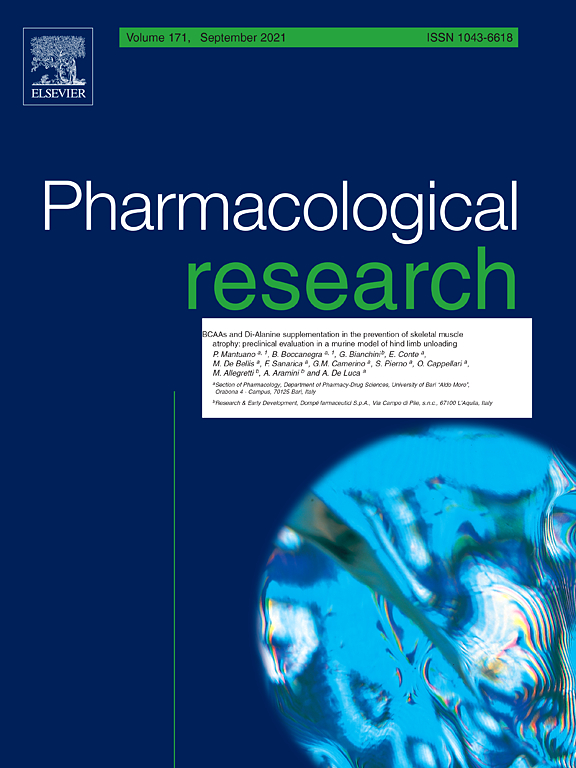
Meta-Analysis
Saffron intake might aid in reducing depressive symptoms but it should not be regarded as an exclusive solution for treating depression.
Musazadeh V, Zarezadeh M, Faghfouri AH, Keramati M, Ghoreishi Z, Farnam A

Experimental Study
Saffron petal extract and anthocyanins can alleviate symptoms of Polycystic Ovary Syndrome by rectifying hormonal imbalances and reducing inflammation in PCOS mice.
Moshfegh F, Balanejad SZ, Shahrokhabady K, Attaranzadeh A

Randomised Controlled Trial
Combining resistance training with saffron supplementation enhances happiness levels and increases dopamine and serotonin concentrations more than resistance training alone.
Moghadam BH, Bagheri R, Roozbeh B, Ashtary-Larky D, Gaeini AA, Dutheil F, Wong A
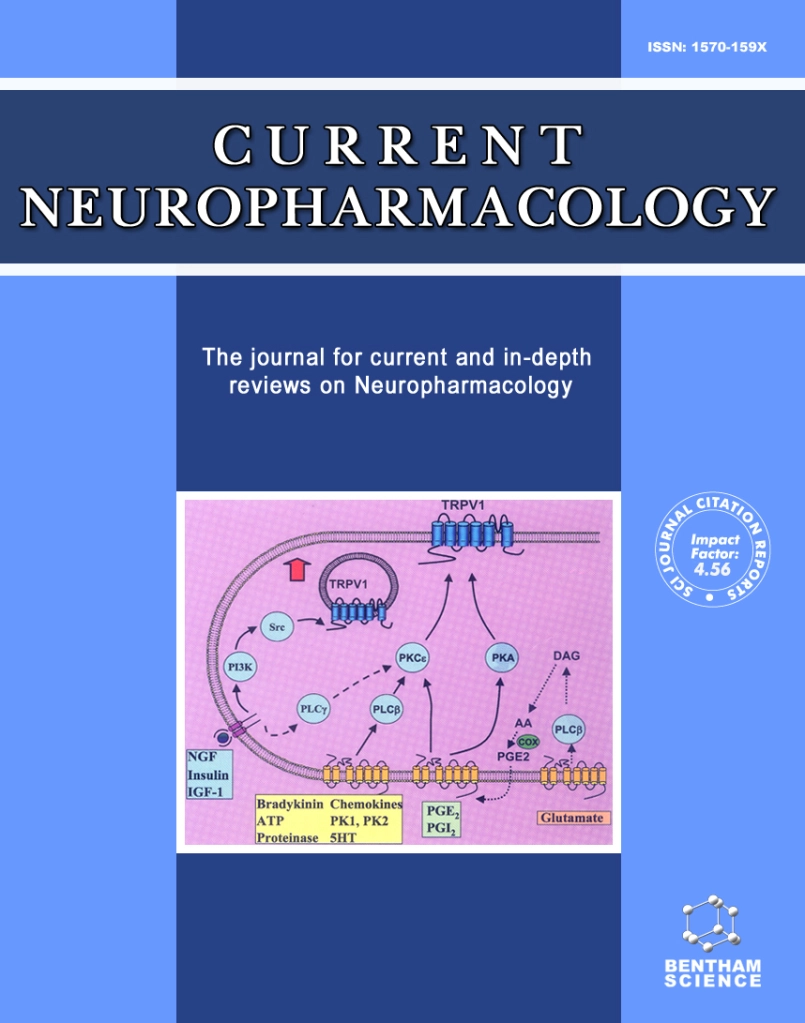
Review Article
Saffron and its components, crocin and crocetin, show potential in treating various eye disorders, including inflammation, macular edema, and glaucoma.
Sepahi S, Ghorani-Azam A, Hossieni SM, Mohajeri SA, Khodaverdi E

Experimental Study
Supplementation with standardized saffron extract improves depressive symptoms and social relationships in healthy individuals experiencing subclinical low mood and stress.
Jackson PA, Forster J, Khan J, Pouchieu C, Dubreuil S, Gaudout D, Moras B, Pourtau L, Joffre F, Vaysse C, Bertrand K, Abrous H, Vauzour D, Brossaud J, Corcuff JB, Capuron L, Kennedy DO

Randomised Controlled Trial
The use of standardized saffron extract appears to show significant improvement in sleep quality in healthy adults with self-reported sleep issues.
Lopresti AL, Smith SJ, Metse AP, Drummond PD
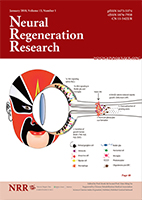
Review Article
Saffron shows potential as a promising therapeutic agent in treating neurodegenerative ocular diseases.
Ramírez JM, Salazar JJ, Fernández-Albarral JA, de Hoz R, Ramírez AI, López-Cuenca I, Salobrar-García E, Pinazo-Durán MD

Randomised Controlled Trial
Administration of honey saffron syrup reduces the length of all stages of labor in nulliparous women.
Ghaderi S, Zaheri F, Nouri B, Shahoei R
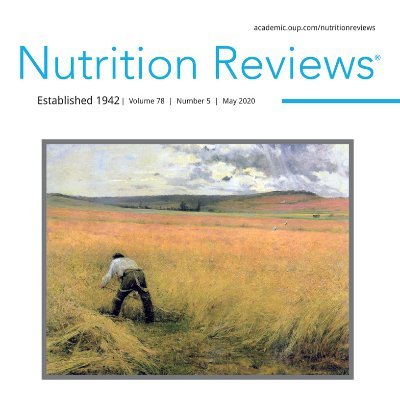
Systematic Review
Saffron shows promising effectiveness in alleviating symptoms of depression and anxiety and augmenting the effects of antidepressants.
Marx W, Lane M, Rocks T, Ruusunen A, Loughman A, Lopresti A, Marshall S, Berk M, Jacka F, Dean OM
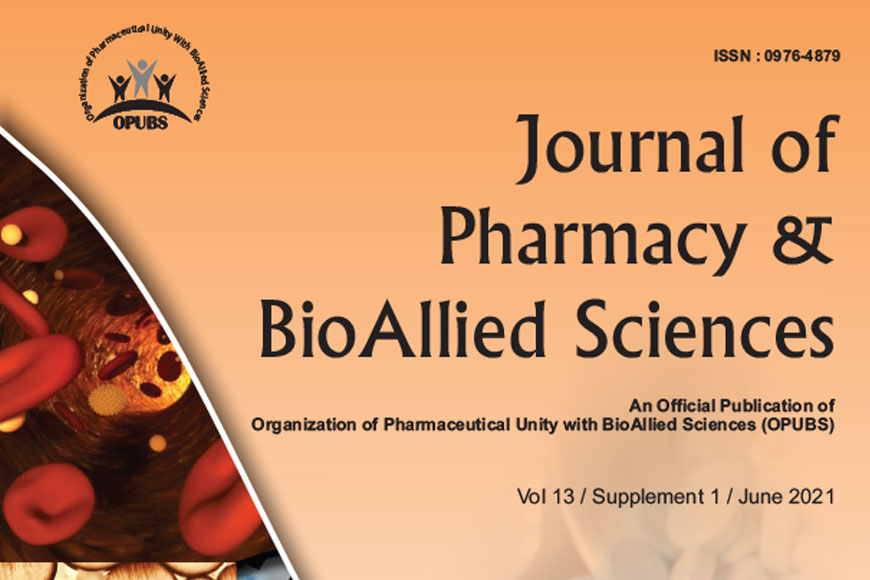
Review Article
Saffron possesses major bioactive compounds such as safranal, crocin, and picrocrocin that are hypothesized to be integral to its antidepressant effects.
Siddiqui MJ, Saleh MSM, Basharuddin SNBB, Zamri SHB, Mohd Najib MH, Che Ibrahim MZ, binti Mohd Noor NA, Binti Mazha HN, Mohd Hassan N, Khatib A
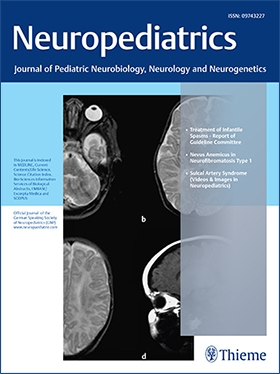
Clinical Study
Saffron has shown potential as an effective and tolerable treatment for major depressive disorder with anxious distress.
Ghajar A, Neishabouri S, Velayati N, Jahangard L, Matinnia N, Haghighi M, Ghaleiha A, Afarideh M, Salimi S, Meysamie A, Akhondzadeh S
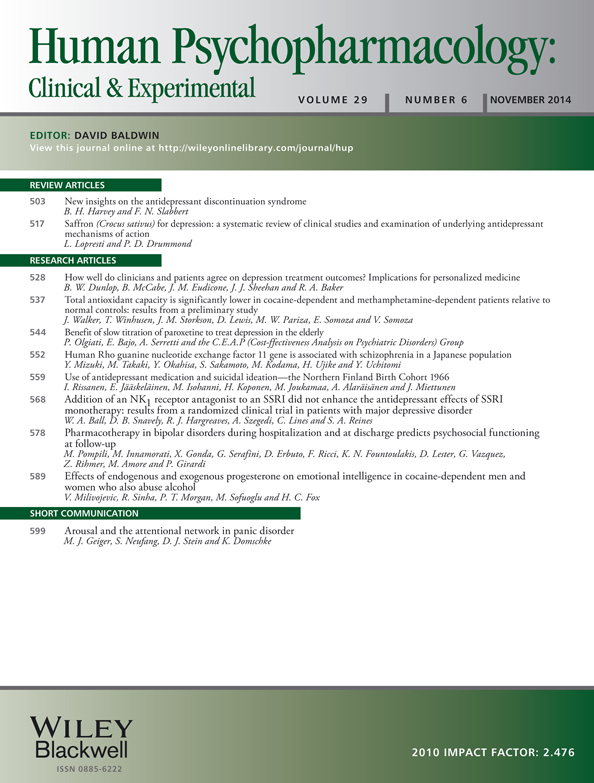
Systematic Review
Saffron, derived from Crocus sativus flower, shows similar efficacy to antidepressant medications in treating major depression, potentially due to its variety of biochemical effects.
Lopresti AL, Drummond PD
Executive Summary
Write an executive summary in the form of a blog article on the topic of "Research into Chinese medicine treatment for Saffron" summarising the research below and using language that can be easily understood by patients and avoiding medical jargon using a professional and caring tone of voice.
Write an executive summary in the form of a blog article on the topic of "Researched Chinese medicine treatments for Saffron" summarising the research below in an objective and easy to understand way, and using language that can be easily understood by patients. Group the article into Chinese medicine treatments first, followed by nutrition and other treatments. Avoid using medical jargon and use a professional and caring tone of voice.
Write me a concise but easy to understand executive summary on the topic of "Chinese medicine treatments for Saffron" based on the following research that I will give you. Your summary should be 2 paragraphs long in Australian English spelling and include references to the studies.
A Network Pharmacology published in 2023 in the journal Medicine found that The compounds apocarotenoids and carotenoids found in saffron extract could potentially interact with multiple targets, helping to manage the symptoms of polycystic ovary syndrome. The study utilized a network pharmacology-based approach to identify the possible therapeutic pathways for apocarotenoids and carotenoids in Crocus sativus on polycystic ovary syndrome. The Ultra-High-Performance Liquid Chromatography with Photodiode Array detector (UHPLC-PDA) standardized stigma-based Crocus sativus extract (CSE) was analyzed for these phytochemicals. Information about polycystic ovary syndrome related genes was collected from a knowledge database and networks were established between these targets and Crocus sativus extract phytochemicals to understand its mechanism of action. Through network analysis and screening conditions, the study found four significant targets, including serine/threonine kinase 1, signal transducer and activator of transcription, and two types of mitogen-activated protein kinases. Gene ontology and Kyoto Encyclopaedia of genes and genomes analysis showed that MAP kinase and serine-threonine pathways were crucial targets in polycystic ovary syndrome. Further molecular docking studies were conducted, and carotenoids apocarotenoids were assessed for absorption, distribution, metabolism, excretion, and toxicity predictions. Elements like crocetin, picrocrocin, and safranal showed strong binding affinity for the identified targets. This analysis also revealed that these compounds had excellent bioavailability and could cross the blood-brain barrier without demonstrating toxicity. In summary, the study demonstrated that these phytochemicals could act on the identified targets, thus pointing towards the potentiality of Crocus sativus extract in managing polycystic ovary syndrome.
A Review Article published in 2023 in the journal PeerJ found that Crocin, a compound derived from saffron, has shown considerable potential in hindering tumor growth and improving immune status, across various malignant tumors. The methodology for the study involved an in-depth review of modern pharmacological studies that have analyzed the therapeutic effects of crocin, a natural compound that can be extracted from saffron. Various anti-tumor effects were assessed including the induction of tumor cell death (apoptosis), restrictions on tumor cell proliferation, and potential barriers to invasion and metastasis of these cells. The potential for enhancement of sensitivity to chemotherapy and improvement of immune status were also examined. Following the review, the study revealed that crocin has significant anti-tumor properties. It showed that this natural compound can induce apoptosis in tumor cells, inhibit their expansion and progression, and even prevent their invasiveness and metastasis. Furthermore, crocin demonstrated the potential to enhance the body’s responsiveness to chemotherapy and help boost the immune system. These effects were observed across a range of different malignant tumors, including stomach, liver, cervical, breast, and colorectal cancers.
A Systematic Review published in 2023 in the journal Modern Care Journal found that Saffron shows promising improvements in dealing with women's health issues related to labor, childbirth, premenstrual syndrome and menopause. For the methodology, the investigators implemented a systematic review by utilizing the PICO process to explore various databases like PubMed, Scopus, Cochrane, among others, until February 2023. A strategically designed search was conducted using a set of keywords related to saffron and women's health conditions. From a pool of 164 articles, 20 randomized controlled trials that met the minimum score based on the Jadad scale were included in the study. In terms of results, the investigation revealed that saffron holds positive impacts on labor and childbirth, such as enhancing Bishop's score, fostering labor progression, and reducing labor pain intensity and fatigue. Moreover, it helps with episiotomy healing and ameliorates mood swings and psychological symptoms associated with menopause and premenstrual syndrome. The study also acknowledges some influence of saffron on postpartum depression.
A Systematic Review published in 2023 in the journal Frontiers in Medicine found that Saffron supplementation significantly decreased oxidative stress markers and has beneficial effects in reducing oxidative stress. For this analysis, we sought to evaluate the impact of saffron supplementation on oxidative stress markers, including malondialdehyde, total antioxidant capacity, total oxidant status, glutathione peroxidase, superoxide dismutase, and prooxidant/antioxidant balance. To do this, we conducted an extensive search across databases such as PubMed/Medline, Web of Science, Cochrane CENTRAL, Scopus, and Google Scholar until December 2022. Our search criteria included randomized controlled trial studies examining the effects of oral saffron supplements on the aforementioned oxidative stress markers. The resulting data were pooled using a random effects model to analyze the results, and we assessed heterogeneity using the Cochrane values. We incorporated 16 cases into our meta-analysis, which comprised of subjects in both saffron and control groups. In our results, we found that saffron consumption resulted in significant reductions in malondialdehyde and total oxidant status levels. Furthermore, it led to a considerable increase in total antioxidant capacity and glutathione peroxidase - all of which are markers indicating oxidative stress. More specifically, within studies where the daily dosage of saffron was greater than 30 mg, and in studies lasting less than 12 weeks, we noted a significant reduction in malondialdehyde levels, especially in participants under 50 years old. Our study faced limitations, including the geographical limitation of the studies being from Iran, the varying nature of the diseases included, and potential confounding factors such as smoking, physical activity, and diet.
A Randomised Controlled Trial published in 2022 in the journal Heliyon found that The combined use of chamomile and saffron with usual medication enhances the efficacy against depression and ensures long term improvement. This research was a randomized, open, blinded trial with 120 participants split evenly into a test and control group. After consent was obtained, a patient health questionnaire was filled out to determine depression scores. Participants in the test group received herbal tea sachets, containing 20 mg of chamomile and 1 mg of saffron, twice per day for a month in addition to their regular medications. Control group participants only received their standard allopathic medicine. Blood samples were taken both before and after the treatment period. The test showed significant improvement in depressive symptoms for both groups. However, in the test group, the addition of the herbal teas amplified the effect of the medications. The herbal adjuvant therapy reduced inflammatory markers and tryptophan levels in plasma, which increased the availability of tryptophan in the brain, a key aspect in managing depression. Consequently, the research concluded that inclusion of these herbs enhances the effectiveness of the conventional treatment against depression and provides long term benefits.
A Review Article published in 2022 in the journal Applied Food Research found that Saffron plant's various parts contain bioactive compounds that, when extracted using innovative techniques, show significant potential for use in food, nutraceutical and drug formulations. The methodology applied in this research involved the qualitative and quantitative analysis of the bioactive components within the saffron plant, with particular focus on apocarotenoids, anthocyanins, flavonoids, and phenolic compounds. Advanced extraction techniques were employed for increased yield and purity, notably supercritical fluid extraction, microwave assisted extraction, pulsed electric field, and high hydrostatic pressure extraction. These methods lead to a broad range of bioactives predomniantly from the plant's stigma. The findings indicated that all parts of the saffron plant were rich in bioactive compounds. The extracted bioactive compounds presented increased stability, bioavailability, and target delivery when examined via several encapsulation techniques. Beyond this, the extraction has allowed for investigation into the food and pharmaceutical applications of these bioactive components from the saffron plant. However, the utilization of these bioactive components, specifically from saffron floral biomass like petals and corm parts, using techniques such as supercritical fluid extraction, pulsed electric field, and emulsion liquid membrane extraction has not been thoroughly investigated.
A Experimental Study published in 2022 in the journal Molecules found that Saffron and its bioactive molecules, notably crocins, have been found to be as effective as common antidepressants in treating depression disorders. The methodology of the research centered on the incredible therapeutic properties of saffron, more specifically its bioactive molecules known as crocins. These molecules were singled out as they have shown a capacity to inhibit monoamine oxidase type A and B. The researchers also conducted experiments with saffron petal extracts, observing their impact on contractile response in electrical field stimulation. There were further investigations into saffron's ability to inhibit the reuptake of monoamines, display -methyl-d-aspartate antagonism, and enhance brain-derived neurotrophic factor signaling. The discussion of the results highlighted the effectiveness of saffron and its crocins in treating depressive disorders. From several experimental studies, it became apparent that saffron and crocins might perform similarly to fluoxetine and imipramine, both widely accepted antidepressant drugs. As such, the paper suggests that these natural elements found in saffron could offer an alternative treatment method for depression. The limitations, however, as highlighted in the study, were issues surrounding stability and delivery of the herbal treatment.
A Systematic Review published in 2022 in the journal Current Drug Discovery Technologies found that Edible medicinal plants like saffron, chamomile, dill seeds, and castor oil have demonstrated positive effects on various aspects of labor, indicating potential natural alternatives for aiding childbirth. This systematic review explores the potential of oral herbs in aiding childbirth, given the rising interest in natural treatments despite advancements in medical interventions. More than 20% of pregnancies require labor induction, often associated with adverse effects and increased cesarean risk. The study investigates edible plants' impact on cervical readiness, labor onset, pain reduction, and labor duration. Among 20 clinical trials, saffron, chamomile, boiled dill seeds, date, date syrup, Descurainia Sophia, and castor oil have demonstrated positive effects on various labor aspects. Nonetheless, larger-scale studies are needed for a comprehensive understanding of these herbs' mechanisms and effectiveness in facilitating labor.
A Meta-Analysis published in 2022 in the journal Pharmacological Research found that Saffron intake might aid in reducing depressive symptoms but it should not be regarded as an exclusive solution for treating depression. This study conducted a comprehensive umbrella meta-analysis of previously published research studies to evaluate the effect of saffron on depression. The researchers collected the relevant studies from various acclaimed international databases like PubMed, Scopus, EMBASE, Web of Science, and the Cochrane Central Library, up until June 2021. All gathered research was based on the effects of saffron on depression. A random-effects model was employed to conduct the meta-analysis and additional analyses, which included subgroup and sensitivity examination. The meta-analysis consisted of seven individual studies altogether. The evaluations displayed that the consumption of saffron led to an observable decrease in Beck's Depression Inventory (BDI) scores, indicating a reduction in depressive feelings. However, the Hamilton Depression Rating Scale (HAMD) scores didn't exhibit any significant change post saffron consumption. Some other mixed scores also remained unchanged. Thus overall, it was deduced that while saffron intake might help alleviate depression, it can't solely be relied upon for effectively treating this mental disorder.
A Experimental Study published in 2022 in the journal Journal of Ethnopharmacology found that Saffron petal extract and anthocyanins can alleviate symptoms of Polycystic Ovary Syndrome by rectifying hormonal imbalances and reducing inflammation in PCOS mice. The study conducted experiments on mice induced with Polycystic Ovary Syndrome (PCOS) through the injection of testosterone enanthate. These mice were then treated with saffron petal extract and anthocyanins to observe the effect on their ovarian hormones, steroidogenic enzymes, ovarian dysfunction, regulation of anti-inflammatory genes, and antioxidant factors. The treatment was found to decrease the elevated levels of luteinizing hormone, testosterone, and estrogen in the PCOS mice, while reviving the reduced follicular-stimulating hormone and progesterone levels. In discussion of the results, it was observed that saffron petal extract and anthocyanins positively altered the levels of gonadotropin receptors, steroid receptors, inflammatory markers, inflammatory-related factors, and antioxidant enzymes that were affected by the PCOS condition in the subject mice. The study also noted that the reproductive tissues of the PCOS mice, which were converted into androgen-dominant environments by the testosterone enanthate induction, were restored into estrogenic conditions after the treatment. Further findings suggested that saffron petal extract and anthocyanins led to amelioration of PCOS symptoms by enhancing the regulation of ovarian steroids, steroidogenic processes, antioxidant enzyme production, and inflammatory markers.
A Randomised Controlled Trial published in 2021 in the journal Physiology & Behavior found that Combining resistance training with saffron supplementation enhances happiness levels and increases dopamine and serotonin concentrations more than resistance training alone. In this research, untrained young males were divided into two groups, one receiving resistance training coupled with saffron supplementation (150 mg pill of pure saffron post-workout and at a similar time on rest days), while the other received resistance training with a placebo (dextrose pill). For a period of six weeks, whole-body supervised resistance training was performed four times per week with three sets using 60-70% of their single repetition maximum. Various markers implicated in depression and happiness levels were assessed before and after this period. In terms of results, substantial increases in various markers including Anandamide, Arachidonoylglycerol, dopamine, and beta-endorphin were noticed within the group combining resistance training with saffron supplementation, yet no such changes were evident within the group who took the placebo. Compared to the placebo, the saffron group also experienced more significant improvements in happiness levels. Moreover, serotonin levels increased in both groups but were greater in the saffron-supplemented group, while tryptophan concentrations remained unchanged. Notably, both groups noted significant boosts in muscular endurance; these changes were greater with saffron supplementation.
A Review Article published in 2021 in the journal Current Neuropharmacology found that Saffron and its components, crocin and crocetin, show potential in treating various eye disorders, including inflammation, macular edema, and glaucoma. Using key search terms like "eye disorders" and "saffron", the authors conducted a systematic review of various literature databases such as PubMed, Scopus, Web of Science, and Google Scholar. Their search included all types of studies, with no strict inclusion criteria, covering clinical studies, in vivo and in vitro studies. They extracted data from each study for qualitative analysis. The review started with 78 articles, narrowed down to 29 relevant ones. Nine articles were clinical trials, and 20 articles examined the impact of saffron on cellular and molecular aspects of eye disorders. Through their analysis, researchers found that saffron protects photoreceptor cells from light-induced damage, decreases glucose levels in diabetic mice, and mitigates the pro-inflammatory response in retinal cells. They reported improved visual function in age-related macular edema and lowered intraocular pressure in patients with glaucoma. Furthermore, crocin, one of the saffron's main ingredients, was found to enhance the best corrected visual acuity and decrease central macular thickness in patients suffering from diabetic maculopathy.
A Experimental Study published in 2021 in the journal Frontiers in Nutrition found that Supplementation with standardized saffron extract improves depressive symptoms and social relationships in healthy individuals experiencing subclinical low mood and stress. The study employed a double-blind, randomized, parallel groups design involving 56 healthy male and female participants aged between 18 and 54. They received either 30 mg standardized saffron extract or a placebo daily for 8 weeks. The saffron's chronic effects on subjective feelings of anxiety, stress, and depression were evaluated using a series of questionnaires. The acute effects of saffron following exposure to a lab-based psychosocial stressor were determined through assessing psychological and physiological parameters. As part of the process, the level of crocetin, a compound found in saffron, was quantified in the participants' urine. The results indicated that individuals who received the saffron extract reported lower depression scores and improved social relationships after the 8-week period. A significant increase in urinary crocetin levels was observed with saffron supplementation, and these changes were found to be correlated with a decrease in depression scores. Additionally, the usual decrease in heart rate variability, a reaction commonly seen during the exposure to stressors, was found to be diminished after acute intake of saffron. The findings suggest that saffron extract can help improve subclinical depressive symptoms in healthy individuals and may increase resilience against the development of stress-related psychiatric disorders.
A Randomised Controlled Trial published in 2020 in the journal Journal of Clinical Sleep Medicine found that The use of standardized saffron extract appears to show significant improvement in sleep quality in healthy adults with self-reported sleep issues. The study employed a 28-day, double-blind, randomized controlled trial to evaluate the effects of a standardized saffron extract on sleep quality in adults with self-reported sleep issues. Total of 63 healthy adults between the ages of 18 and 70 were recruited and randomly assigned to receive either the saffron extract, taken twice daily at a dose of 14mg, or a placebo. From a pool of 55 participants, it was found that those who consumed saffron showed noteworthy enhancements in sleep quality. The improvements were measured by an Insomnia Severity Index, a Restorative Sleep Questionnaire, and a Pittsburgh Sleep Diary. Notably, the intake of saffron was well tolerated and did not result in any reported adverse effects.
A Review Article published in 2020 in the journal Neural Regeneration Research found that Saffron shows potential as a promising therapeutic agent in treating neurodegenerative ocular diseases. This research thoroughly explores the therapeutic properties of Saffron (Crocus sativus L.), traditionally used in food and medicine, focusing on its anti-inflammatory, antioxidant, and anti-apoptotic activities. These properties stem from saffron's main metabolites, notably crocin and crocetin. In addition to investigating its commonly attributed properties, the study delves into the possible neuroprotective role of saffron in neurodegenerative diseases like Parkinson's and Alzheimer's, looking at both experimental models and clinical studies in patients. The findings reveal that saffron has shown beneficial effects in the treatment of ocular neurodegenerative conditions including diabetic retinopathy, retinitis pigmentosa, age-related macular degeneration, and glaucoma. This study offers an in-depth review and report on ongoing investigations of saffron extract’s benefits for ocular diseases, particularly neurodegenerative ones.
A Randomised Controlled Trial published in 2019 in the journal Journal of Pharmaceutical Research International found that Administration of honey saffron syrup reduces the length of all stages of labor in nulliparous women. The study divided eligible nulliparous women randomly into three equal groups. The first group was given saffron syrup prepared with honey, the second group received saffron syrup made with sugar, and the control group received a placebo. These were given orally every two hours. Analysis was conducted via Fisher’s test, ANOVA with Fisher’s post hoc test, and a Repeated measure statistical method. In the results, it was evident that the mean duration of labor in the groups administered with the saffron syrups was significantly shorter than in the control group. Moreover, the length of the first stage of labor in the honey saffron syrup group was considerably less than in the sugar saffron syrup group. This indicates the effectiveness of honey saffron in shortening labor duration.
A Systematic Review published in 2019 in the journal Nutrition Reviews found that Saffron shows promising effectiveness in alleviating symptoms of depression and anxiety and augmenting the effects of antidepressants. The research was carried out following the PRISMA guidelines and performed a comprehensive literature review of randomized controlled trials to study the impact of saffron supplementation on symptoms of depression and anxiety. This included both cases where saffron was used alone as a therapy and cases where it was used in conjunction with other treatments. The quality and risk of bias in these studies were evaluated using the Jadad scale. In this analysis, the result of saffron supplementation was compared against placebo and regular pharmacotherapy. It was concluded that using saffron had a notable positive effect in relieving symptoms of depression and anxiety when compared with a placebo. Additionally, it was found that saffron also demonstrated a sizeable positive effect when used alongside antidepressants in treating depressive symptoms. Nonetheless, the Egger's regression test pointed out evidence of publication bias in this area of study.
A Review Article published in 2018 in the journal Journal of Pharmacy And Bioallied Sciences found that Saffron possesses major bioactive compounds such as safranal, crocin, and picrocrocin that are hypothesized to be integral to its antidepressant effects. In this research, a chemical analysis was undertaken on the saffron plant, a perennial herb native to various mountainous regions, ranging from Asia Minor to India. During this in-depth analysis, the researchers identified and elucidated almost 150 volatile and nonvolatile compounds from the plant. A key focus of the analysis was the three major bioactive compounds - safranal, crocin, and picrocrocin, believed to be the primary factors behind saffron's aroma and bitter taste. On the subject of the findings, it was concluded that these major bioactive compounds are likely playing a pivotal role in the medicinal potential of the saffron plant. Specifically, the plant's well-documented antidepressant properties could largely be attributed to these compounds. The study also focused on the pharmacokinetic and pharmacodynamic properties of the plant, indicating that saffron could have efficacious and safe potential for use. It was inferred that this potential mainly pertains to its antidepressant effects, spurring increased interest in further exploration of its assorted bioactive compounds.
A Clinical Study published in 2016 in the journal Neuropediatrics found that Saffron has shown potential as an effective and tolerable treatment for major depressive disorder with anxious distress. In the study, 66 patients suffering from major depressive disorder with anxious distress were randomly chosen to be treated either with 30 mg of saffron per day or 40 mg of citalopram per day for a duration of 6 weeks. Their progress was monitored using the Hamilton Rating Scale for Depression and the Hamilton Rating Scale for Anxiety, which aided in evaluating the effects of the treatment throughout the trial. In the results observed, it was found that patients from both groups, those treated with saffron and those administered with citalopram, demonstrated significant improvement in their depression and anxiety scales. The change in the scores between the two groups was examined and it was found that there was no profound difference. Interestingly, the frequency of side effects appearing was also not significantly varied between the two groups. This study hence showcases saffron as a potential reliable and well-tolerated treatment for major depressive disorder accompanied with anxious distress.
A Systematic Review published in 2014 in the journal Human Psychopharmacology: Clinical and Experimental found that Saffron, derived from Crocus sativus flower, shows similar efficacy to antidepressant medications in treating major depression, potentially due to its variety of biochemical effects. In the methodical study, electronic databases were consulted to find high-quality, randomized, double-blind studies that had either placebo or antidepressant controls. Six distinct studies were found through this process. In vivo and in vitro studies were reviewed to better comprehend the potential antidepressant mechanisms of action saffron brings forth. The results showed that in the studies compared with a placebo, saffron had large beneficial effects. When compared with regular antidepressant medication, saffron demonstrated similar levels of efficacy. The potential mechanisms behind saffron's antidepressant qualities seemingly lay in its serotonergic, antioxidant, anti-inflammatory, neuro-endocrine, and neuroprotective effects.
Moderation Tools
Topic
Sign In
Users not signed in are limited to viewing the 5 most recent items of content.